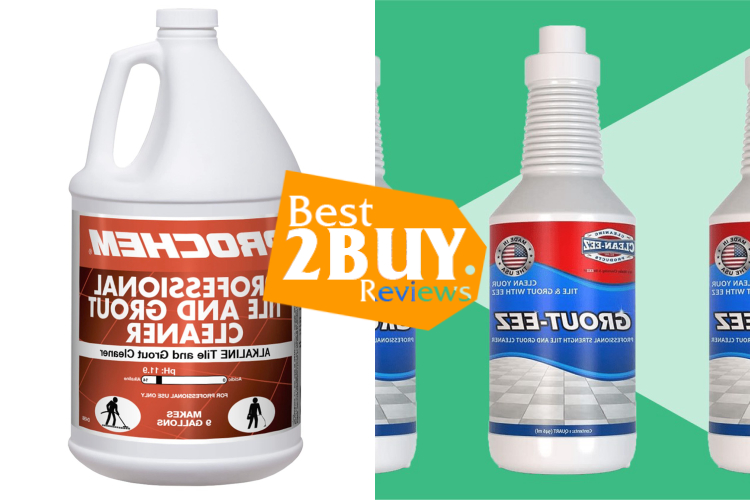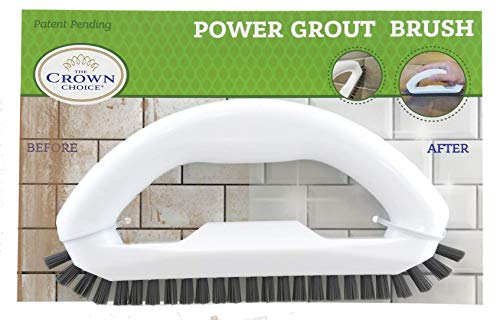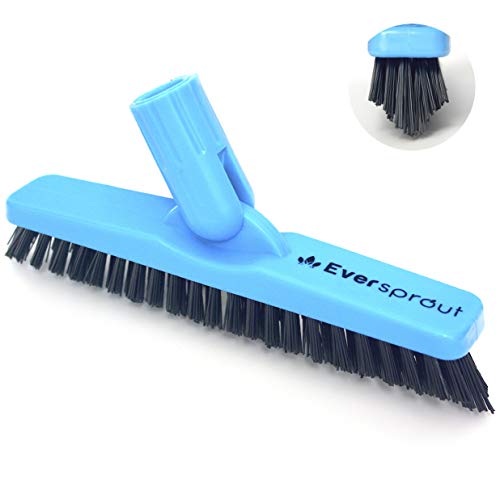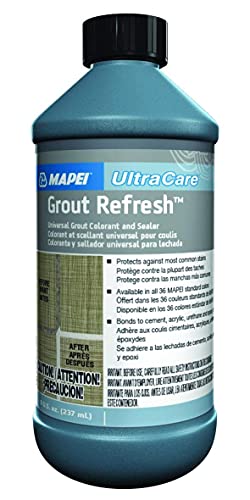Tile grout cleaners are specialized cleaning products designed to remove dirt, stains, and grime from the grout lines between tiles. Grout is a porous material that easily collects dirt, mold, mildew, and other contaminants, making regular cleaning essential to maintain the appearance and hygiene of tiled surfaces.
- 1. Types of Tile grout cleaners
- 2. Ingredient of Tile Grout Cleaners
- 2.1. Water
- 2.2. Surfactants
- 2.3. Acidic Compounds
- 2.4. Alkaline Compounds
- 2.5. Oxygen Bleach (Sodium Percarbonate)
- 2.6. Enzymes
- 2.7. Chelating Agents
- 2.8. Fragrances
- 2.9. Thickening Agents
- 2.10. Colorants
- 3. Benefits of Tile Grout Cleaners
- 3.1. Removal of Stains and Discoloration
- 3.2. Elimination of Mold and Mildew
- 3.3. Hygiene and Cleanliness
- 3.4. Prolonged Grout Lifespan
- 3.5. Preventing Future Stains
- 3.6. Improved Aesthetic Appeal
- 3.7. Enhanced Safety
- 3.8. Restoration of Grout Color
- 3.9. Cost-Effective Maintenance
- 3.10. Eco-Friendly Options
- 4. How to choose Tile Grout Cleaners?
- 4.1. Type of Grout
- 4.2. Surface Compatibility
- 4.3. Stain Type
- 4.4. Safety Considerations
- 4.5. Application Method
- 4.6. Effectiveness and Reviews
- 4.7. Environmental Impact
- 4.8. Price and Quantity
- 4.9. Residue and Resealing
- 4.10. Manufacturer Recommendations
- 5. In conclusion
Types of Tile grout cleaners
There are various types of tile grout cleaners available on the market, each with its own formulation and application methods. Some common types include:
Grout Cleaners with Bleach
These cleaners often contain bleach or chlorine-based ingredients that are effective at removing tough stains and discoloration. They are especially useful for cleaning white or light-colored grout, but caution should be exercised when using them on colored grout, as they may cause fading.
Acid-Based Grout Cleaners
These cleaners contain acidic ingredients like phosphoric acid or hydrochloric acid. They are effective at dissolving mineral deposits, hard water stains, and efflorescence from grout lines. Acid-based cleaners should be used with care and according to the manufacturer's instructions, as they can be harsh on certain types of tile surfaces.
Oxygenated Grout Cleaners
These cleaners use oxygen bleach as their primary active ingredient. They are generally considered more environmentally friendly and safe for colored grout. Oxygenated cleaners work well on organic stains and can be gentler on surfaces compared to acid-based or bleach-based alternatives.
Enzyme-Based Grout Cleaners
Enzymatic cleaners use enzymes to break down organic stains and biological matter like mold and mildew. They are typically non-toxic and safer for both users and the environment.
Spray-on Grout Cleaners
These products come in convenient spray bottles and are designed for regular maintenance and spot cleaning. They are easy to use and can help prevent the buildup of grime when used regularly.
When using tile grout cleaners, it's essential to follow the manufacturer's instructions carefully and test the cleaner in a small, inconspicuous area first to ensure it won't damage the tiles or grout. Additionally, wearing protective gloves and ensuring proper ventilation in the cleaning area is advised, especially when using products containing harsh chemicals.
Remember, regular maintenance and cleaning can prolong the life of your grout and keep your tiled surfaces looking clean and fresh.

Ingredient of Tile Grout Cleaners
The specific ingredients of tile grout cleaners can vary depending on the brand and type of cleaner. However, I can provide a list of common ingredients that you might find in tile grout cleaners:
Water
Water is often the main solvent used in grout cleaners, helping to dissolve and carry away dirt and grime.
Surfactants
Surfactants are surface-active agents that help to break down and lift dirt and grease from the grout surface. They facilitate the cleaning process by reducing the surface tension between the grout and the cleaning solution.
Acidic Compounds
Acid-based grout cleaners may contain ingredients like phosphoric acid or hydrochloric acid, which are effective at dissolving mineral deposits and hard water stains.
Alkaline Compounds
Some grout cleaners use alkaline ingredients like sodium hydroxide (lye) to break down grease and organic stains.
Oxygen Bleach (Sodium Percarbonate)
Oxygenated grout cleaners often use oxygen bleach, which releases oxygen when it comes into contact with water. This helps to lift and remove stains from the grout.
Enzymes
Enzymatic cleaners contain specific enzymes that target and break down organic stains, such as those caused by mold and mildew.
Chelating Agents
Chelating agents help to remove mineral deposits and metal ions from the grout surface, improving the effectiveness of the cleaner.
Fragrances
Some grout cleaners may include fragrances to give a pleasant scent to the cleaned area.
Thickening Agents
To ensure that the cleaner adheres to vertical surfaces and stays in place on grout lines, thickening agents may be added.
Colorants
Grout cleaners designed for colored grout may contain colorants to help restore or enhance the grout's color.
It's important to note that some grout cleaners may also include additional ingredients for specific purposes, such as anti-bacterial agents or additives for added protection against future staining. Always check the product label for a comprehensive list of ingredients and follow the manufacturer's instructions for safe and effective use. Additionally, make sure to store these cleaners out of reach of children and pets.
Benefits of Tile Grout Cleaners
Tile grout cleaners offer several benefits that contribute to the maintenance and appearance of tiled surfaces. Some of the key benefits of using tile grout cleaners include:
Removal of Stains and Discoloration
Grout cleaners effectively remove dirt, stains, and discoloration from grout lines, restoring the original color and appearance of the grout. This can significantly enhance the overall look of the tiled area.
Elimination of Mold and Mildew
Many grout cleaners contain anti-fungal agents that help to eradicate mold, mildew, and other harmful microorganisms that tend to accumulate in grout lines, promoting a healthier living environment.
Hygiene and Cleanliness
Regularly cleaning grout lines helps maintain a higher level of hygiene and cleanliness in areas prone to moisture, such as bathrooms and kitchens. It reduces the growth of bacteria and germs, contributing to a more sanitary living space.
Prolonged Grout Lifespan
Grout that is kept clean and free of contaminants is less likely to degrade or deteriorate over time. This prolongs the lifespan of the grout and reduces the need for premature re-grouting.
Preventing Future Stains
Some grout cleaners include protective properties that create a barrier, making it harder for future stains to adhere to the grout. This can make regular cleaning easier and keep the grout looking cleaner for longer.
Improved Aesthetic Appeal
Clean grout lines enhance the overall appearance of tiled surfaces, making them look fresh and well-maintained. This is especially important in areas where aesthetics play a significant role, such as kitchens, bathrooms, and other high-traffic spaces.
Enhanced Safety
Clean grout lines can improve traction on tiled surfaces, reducing the risk of slips and falls, especially in areas exposed to water or spills.
Restoration of Grout Color
Some grout cleaners are designed to restore or enhance the original color of the grout, making the tiled area look as good as new without the need for re-grouting.
Cost-Effective Maintenance
Regularly cleaning grout can help prevent the need for more expensive and extensive cleaning or restoration procedures down the line.
Eco-Friendly Options
Many tile grout cleaners now come in eco-friendly formulations, reducing their impact on the environment and providing a more sustainable cleaning solution.
How to choose Tile Grout Cleaners?
Choosing the right tile grout cleaner involves considering several factors to ensure effective cleaning while safeguarding the integrity of your tiles and grout. Here are some essential tips to help you make the best choice:
Type of Grout
Determine the type of grout you have (e.g., sanded, unsanded, epoxy, colored) before selecting a cleaner. Some cleaners may be suitable for all types, while others are designed specifically for certain grout types. Using the wrong cleaner can damage the grout or affect its color.
Surface Compatibility
Check if the cleaner is safe for use on the specific type of tile you have. Some aggressive chemicals can harm certain tile materials, such as natural stone or delicate glazed tiles. Look for cleaners labeled as safe for your tile type.
Stain Type
Identify the type of stains you need to remove from the grout (e.g., dirt, mold, mildew, soap scum, mineral deposits). Different cleaners may be more effective against specific stains, so choose one that targets the problem you're facing.
Safety Considerations
Pay attention to the safety precautions mentioned on the product label. Some cleaners may contain harsh chemicals that require protective gear (gloves, goggles) or proper ventilation during use. Opt for products with less toxic or eco-friendly formulations if possible.
Application Method
Consider the ease of application and the effort required. Some grout cleaners come in convenient spray bottles, while others may require dilution or mixing before use. Choose a method that suits your preferences and the size of the cleaning task.
Effectiveness and Reviews
Look for customer reviews and ratings of the product to gauge its effectiveness. Positive reviews from other users can give you confidence in the cleaner's performance.
Environmental Impact
If you're environmentally conscious, opt for eco-friendly or biodegradable cleaners. These products are formulated to have a lower impact on the environment.
Price and Quantity
Compare the price of the cleaner with the quantity provided. Sometimes, buying in bulk can be more cost-effective if you have a large area to clean or anticipate regular use.
Residue and Resealing
Some grout cleaners leave residue that needs to be rinsed thoroughly. Additionally, some products may require resealing the grout after cleaning. Consider the post-cleaning requirements and the extra steps involved.
Manufacturer Recommendations
Follow the manufacturer's recommendations and instructions for the best results. Using the product as directed ensures safety and effectiveness.
Before using any grout cleaner, it's always a good idea to test it in a small, inconspicuous area to ensure it doesn't cause any damage to your tiles or grout. If you're uncertain about which product to choose, consider seeking advice from a professional or the tile manufacturer.
In conclusion
Overall, tile grout cleaners play a vital role in preserving the beauty and functionality of tiled surfaces, providing both aesthetic and practical benefits for homeowners and businesses alike.
To buy air tile grout cleaners, you can buy in store but if you don’t have time, I recommend you to buy in Amazon. That platform offer you with various products and wide range price together promotion. Buy in Amazon, you will easily find your need. To make you easily choose tile grout cleaners in Amazon, we selected top best seller tile grout cleaners in our website. Read carefully and Enjoy!
I’m Jane Smith, editor at best2buy.reviews. If you have any questions, please feel free to let me know. I’m always availabe to respone any your questions.











